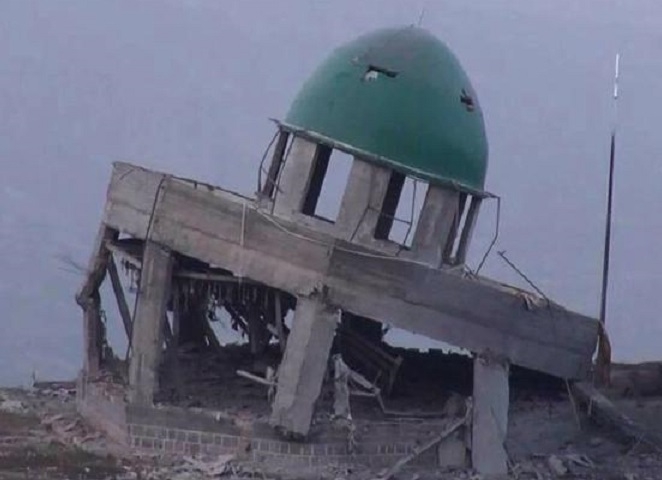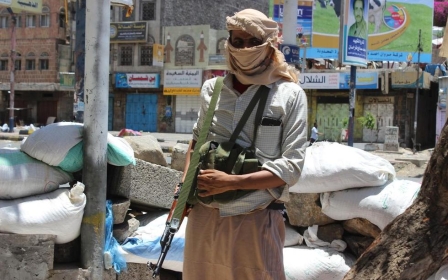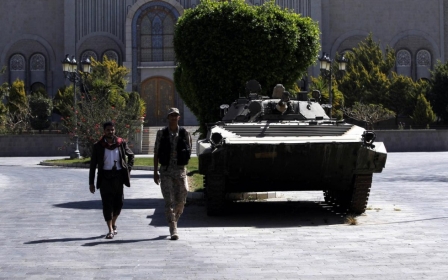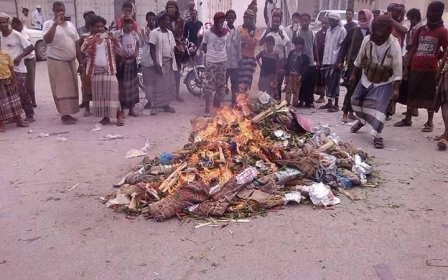Iran: Competing worldviews on Saudi Arabia

As Iran-Saudi tensions spike over Yemen, two schools of thought have emerged in Iran. The first is a hardline, aggressive approach adopted by the conservatives, while the second is a moderate, conciliatory approach pursued by the moderates.
Saudis have had troubled relations with Iran since the inception of the Islamic Republic in 1978. At that time, no rivalry over gaining hegemony in the region existed. Nor was there any Sunni-Shiite competition.
The first glimpses of animosity between Saudi Arabia and Iran appeared when revolutionary Iran began to promote the doctrine of exporting the Islamic revolution. This raised tensions despite the leader of the Iranian Revolution, Ayatollah Ruhollah Khomeini, emphasising that the doctrine was a theory not of swords but of words. Riyadh perceived this approach as a serious threat to the kingdom’s establishment because it could instigate the Shiite population in Saudi Arabia, which makes up 10 to 15 percent of its population, to revolt.
The Iranian-Saudi hostilities peaked during Iran's Iraqi invasion (1980-1988) when the Saudis supported Iraq by pouring billions of dollars into financing Saddam Hussein.
At the war's conclusion, the two countries adopted a subtle posture in criticising or referring to each other's differences.
That approach changed when war broke out in Yemen. Saudis adopted an aggressive position both militarily and politically. At the onset of the Saudi airstrikes on Yemen, Adel al-Jubeir, then Saudi ambassador to the US and current foreign minister, said, “This is really a war to defend… Yemeni people from takeover by a radical militant group aligned with Iran and Hezbollah.”
Reportedly, on 5 May, Saudi King Salman, “in a clear reference to Iran”, emphasised the need to confront Tehran, a country that “aims to expand control and impose its hegemony” and thus threatens the region’s stability and creates “sectarian sedition”.
On the Iranian side, the Supreme Leader, Ayatollah Khamenei, used exceptionally harsh language toward the Saudis - not heard since the 1980s. He compared the Saudi Arabian airstrikes against Houthis to Israel’s bombing of Gaza and “genocide” against Palestinians.
Referring to Saudis’ long-time way of dealing with Iran, he noted, “Despite disputes, the Saudis used to display composure [with] us.” He added, “But now inexperienced youngsters have come to power and replaced composure [with] barbarism.” He warned the Saudis that their “nose will be rubbed in Yemen’s mud”.
Several high-ranking hardliners, notable among them the Iranian Revolutionary Guard Corp commander, followed suit. Mohammad Ali Jafari called on Iranian officials by saying, “Now that the attacks have been launched [against Yemen], no considerations should be shown” for Riyadh. “Saudi Arabia is following in the Zionist (Israel) regime’s footsteps in the Islamic world,” Jafari was quoted as saying.
Addressing a meeting of senior military officials, chief of staff of the Iranian Armed Forces Major General Seyed Hassan Firouzabadi remarked, “The crimes committed by the Al-Saud against the Muslim, revolutionary and oppressed Yemeni people, who are demanding independence and Islamic populism, are very heavy and deserve harsh punishment.”
Moderates, however, have pursued a completely different approach. Amid a heated rhetorical battle between Saudi Arabia and Iran, Mohammad Javad Zarif, the Iranian foreign minister, congratulated his Saudi counterpart’s recent appointment. More interesting was President Hassan Rouhani’s remarks on 29 April to describe “the logic of the administration with the whole world” with a reference to an Iranian saying: “Generosity with friends and tolerance with enemies.”
Some may view the two different approaches as a classic “good-cop bad-cop” tactic. Although this assertion cannot be completely ruled out, the reality, however, is that the difference in the two approaches stems from the fundamentals of two different worldviews. The first gives more weight to the ideological values in adopting a political position, while the second heavily bends toward pragmatism, albeit not completely ignoring ideology.
Rouhani and his team wholeheartedly believe that Iran should interact with friends and foes and that Iran cannot live in isolation.
In 2012, Javad Zarif, Iran’s top diplomat, published a 360-page book in Farsi titled Mr Ambassador, which was drawn from a lengthy interview. In it, Zarif draws the framework of his vision on foreign policy, which is implicitly critical: “The art of diplomacy is to maximise your benefits at minimum expense. As such, it is impossible to maximise your benefits through confrontational policies in this interconnected world.” This is a technical description of what Rouhani says in simple, publicly understandable words.
Contrasting views between the two camps appear in each of their approaches toward the nuclear crisis. Rouhani and his team’s priority is to actualise a nuclear agreement and end the sanctions in order to boost the economy and end Iran’s isolation imposed by the West. Rouhani stresses that sustainable growth and development is not achievable in isolation from the rest of the world.
Ayatollah Khamenei, however, views these affairs differently. “The key to the economic problems is not in Lausanne and Geneva and New York, it’s inside the country, and everyone should fulfill their different responsibilities for boosting domestic production as the only remedy to economic problems,” Iran’s leader said on 29 April.
Iran’s nuclear case is a helpful determinant in answering the question of which camp will get the upper hand in dealing with Saudi Arabia. Confrontation with the West, primarily the US, led only to significant expansion of Iran’s nuclear programme and almost brought the US and Iran to the brink of a disastrous war. But once the US chose a conciliatory approach, the door was opened for Iran's moderates to manoeuvre.
Applying this lesson to the Saudi-Iran case, the more Saudis become aggressive, the more Iran’s position will be decided by the hardliners, leaving moderates marginalised.
The Saudis' confrontational policy toward Iran will not secure them victory in the Yemen war, given that the outcome of war will be decided on the battlefield. And history seriously calls such a victory into question.
Research based on historical records about the effectiveness of airstrikes in combating insurgency movements was conducted by a group of experts at Yale and Stanford in March. The research concludes: “The historical record is not optimistic about the prospects of escalation as a means of reaching a decisive breakthrough against insurgent foes. The two most severe bombing campaigns in history - the United States in Vietnam and the Soviet Union in Afghanistan - illustrate how insurgents can absorb tremendous losses and still continue to fight.”
- Shahir Shahidsaless is a political analyst and freelance journalist writing primarily about Iranian domestic and foreign affairs. He is also the co-author of “Iran and the United States: An Insider’s View on the Failed Past and the Road to Peace,” published in May 2014.
The views expressed in this article belong to the author and do not necessarily reflect the editorial policy of Middle East Eye.
Photo: File photo shows a Houthi shrine in May 2015
Middle East Eye propose une couverture et une analyse indépendantes et incomparables du Moyen-Orient, de l’Afrique du Nord et d’autres régions du monde. Pour en savoir plus sur la reprise de ce contenu et les frais qui s’appliquent, veuillez remplir ce formulaire [en anglais]. Pour en savoir plus sur MEE, cliquez ici [en anglais].





